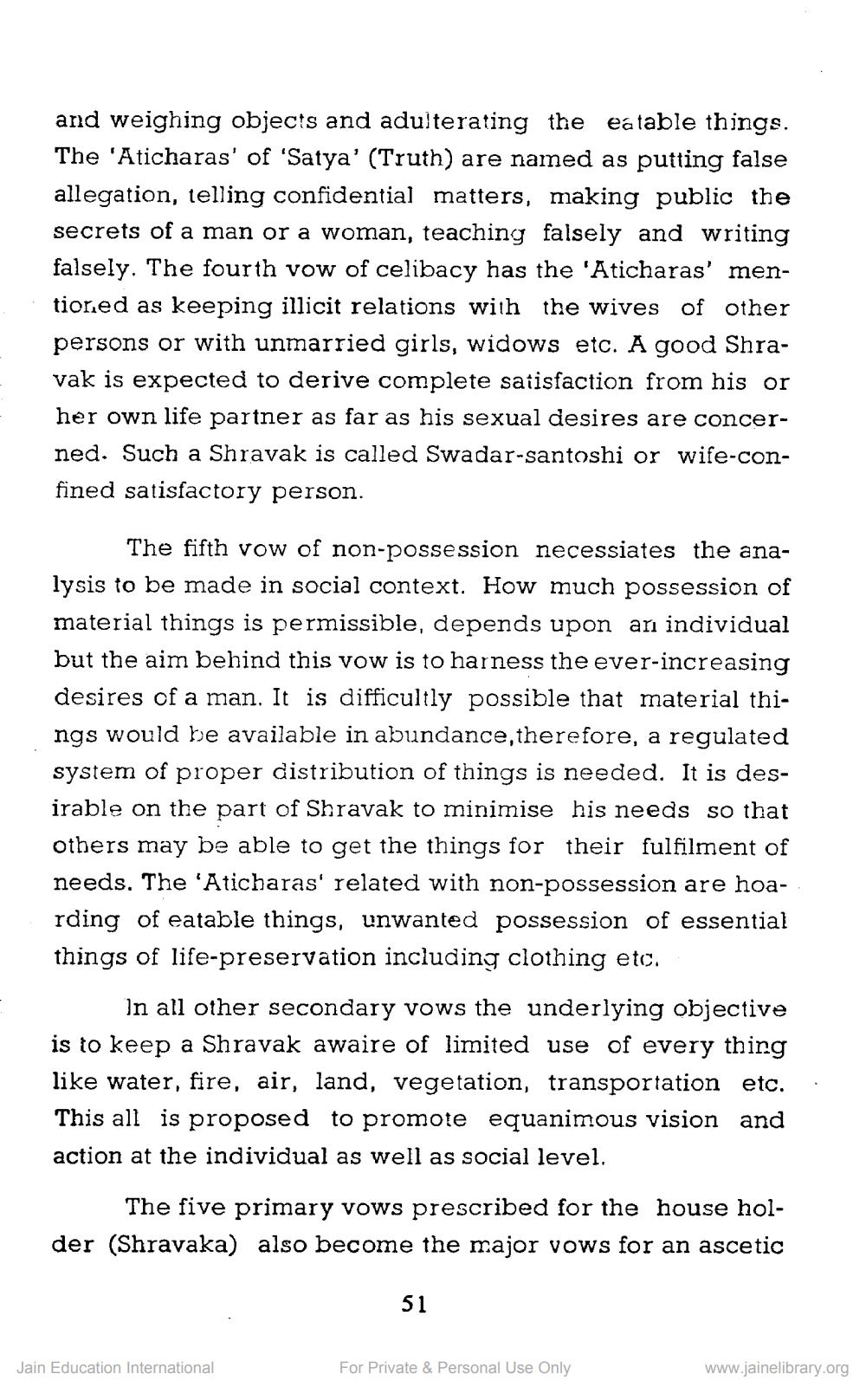________________
and weighing objects and adulterating the eatable things. The 'Aticharas' of 'Satya' (Truth) are named as putting false allegation, telling confidential matters, making public the secrets of a man or a woman, teaching falsely and writing falsely. The fourth vow of celibacy has the 'Aticharas' mentioned as keeping illicit relations with the wives of other persons or with unmarried girls, widows etc. A good Shravak is expected to derive complete satisfaction from his or her own life partner as far as his sexual desires are concerned. Such a Shravak is called Swadar-santoshi or wife-confined satisfactory person.
The fifth vow of non-possession necessiates the analysis to be made in social context. How much possession of material things is permissible, depends upon an individual but the aim behind this vow is to harness the ever-increasing desires of a man. It is difficultly possible that material things would be available in abundance, therefore, a regulated system of proper distribution of things is needed. It is desirable on the part of Shravak to minimise his needs so that others may be able to get the things for their fulfilment of needs. The 'Aticharas' related with non-possession are hoarding of eatable things, unwanted possession of essential things of life-preservation including clothing etc.
In all other secondary vows the underlying objective is to keep a Shravak awaire of limited use of every thing like water, fire, air, land, vegetation, transportation etc. This all is proposed to promote equanimous vision and action at the individual as well as social level.
The five primary vows prescribed for the house holder (Shravaka) also become the major vows for an ascetic
Jain Education International
51
For Private & Personal Use Only
www.jainelibrary.org




